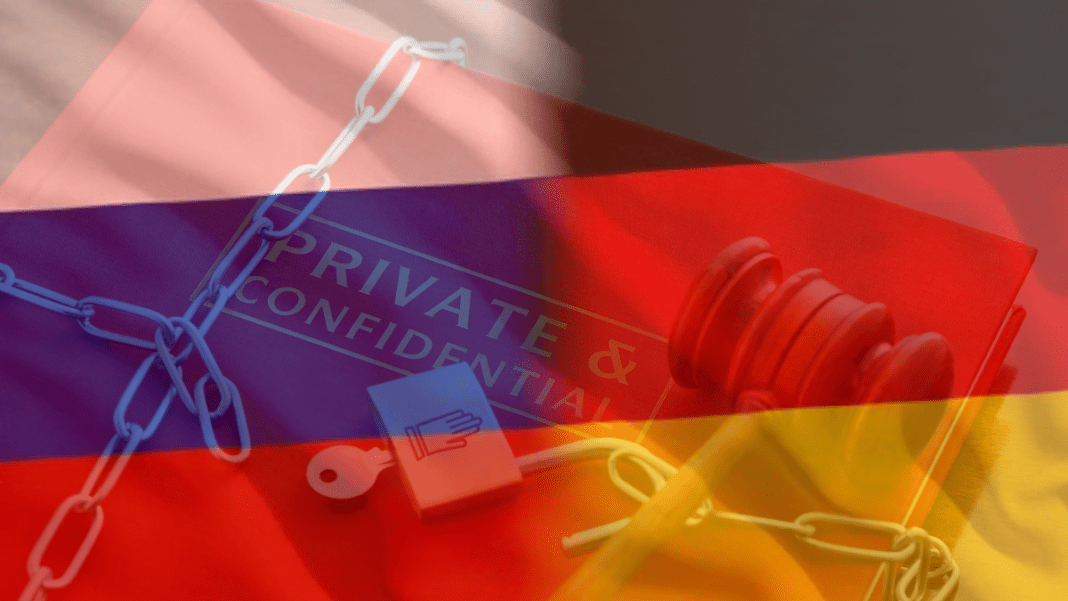Russia has officially ended a 30-year-old military cooperation agreement with Germany, marking a major turning point in post-Cold War European relations. This agreement, signed in 1996, was a symbol of peace and cooperation between Russia and Germany, as well as a rare point of military dialogue between Russia and a key NATO member, following the collapse of the Soviet Union.
Historic NATO-Russia Military Agreement Officially Scrapped
According to a statement issued by the Kremlin, the withdrawal was due to Germany’s “hostile policies” and “militaristic ambitions.” The Russian government accused Berlin of actively supporting Ukraine in its conflict with Moscow and claimed that Germany was becoming more aligned with NATO’s military strategy, which Russia views as threatening.
The announcement was made through an official decree by Russian President Vladimir Putin. The document stated that the agreement “has lost its relevance” and is “no longer in Russia’s national interests.” This decision was made public just days after Germany authorized the delivery of long-range weapons to Ukraine, further escalating tensions between Moscow and Berlin.
This military cooperation deal, which had remained in place for nearly three decades, allowed joint training exercises, open communication between military officials, and exchange programs. It was one of the few remaining diplomatic ties between Russia and a major NATO country. The sudden termination of the agreement reflects the deepening divide between Russia and Western powers.
Background: Agreement Rooted in Post-Cold War Peace
The original military cooperation agreement was signed in 1996, just five years after the dissolution of the Soviet Union. At the time, both Russia and Germany saw the agreement as a way to maintain peace in Europe and ensure stability across former Cold War fronts.
Under this pact, Russian and German military forces engaged in joint training operations, officer exchanges, and shared discussions on strategic defense topics. It was viewed as a confidence-building measure in a time of great change and uncertainty in Europe. The agreement helped maintain a diplomatic channel between the two countries even as tensions flared up in other regions.
However, relations between Russia and Germany began to deteriorate following Russia’s annexation of Crimea in 2014. Germany strongly condemned the move and supported EU sanctions against Russia. Since then, Germany has openly criticized Russia’s actions in Ukraine. It has also increased both military and humanitarian aid to Kyiv.
In 2022, Germany made a major shift in its defense policy. This change came as a response to Russia’s invasion of Ukraine. Germany committed more money to strengthen its military. It also promised to give more support to Ukraine. Russia viewed these steps as a break from the 1996 agreement. It saw them as signs that Germany was moving closer to NATO’s military goals.
Rising NATO-Russia Tensions Fuel Decision
Russia’s decision to cancel the military pact is seen as another step in the growing rift between Moscow and NATO. With Germany being one of the largest and most influential NATO members, the end of this agreement signals a significant breakdown in East-West military relations.
The Russian government has made several accusations in recent months, claiming that NATO forces are moving closer to its borders and increasing their military presence in Eastern Europe. The Kremlin says this is a direct threat to Russian national security.
Germany, along with other NATO countries, has repeatedly denied these accusations and insists that its actions are meant to defend Ukraine’s sovereignty and maintain peace in Europe. However, Russia maintains that Western military support for Ukraine is an act of aggression.
After withdrawing from the pact, Russian media and officials made strong claims. They suggested that Germany’s support for Ukraine has crossed a red line. According to them, Germany is no longer just an ally of Ukraine. Russia now sees Germany as an active part of the wider conflict. Some analysts in Moscow called this move a warning shot. They believe it shows Russia’s growing frustration with Germany.
This development comes at a time of rising concern. Many observers say that NATO-Russia relations are at their lowest point since the Cold War. Military experts believe this could be the first clear sign of a growing confrontation. Tensions between NATO and Russia appear to be increasing quickly.
🧨 Poland scrambles fighter jets as Russian drone swarm closes in on NATO airspace
So far, NATO has not responded directly to Russia’s withdrawal from the agreement. However, the German government stated that the military pact had become “largely inactive” over the years and that its termination will not impact Berlin’s current defense strategy.
Meanwhile, military observers continue to track Russian troop movements, cyber operations, and aerial activity across the NATO border regions. There has been no official declaration of escalated military action, but the end of this long-standing agreement has added to the growing list of concerns over regional stability in Europe.

